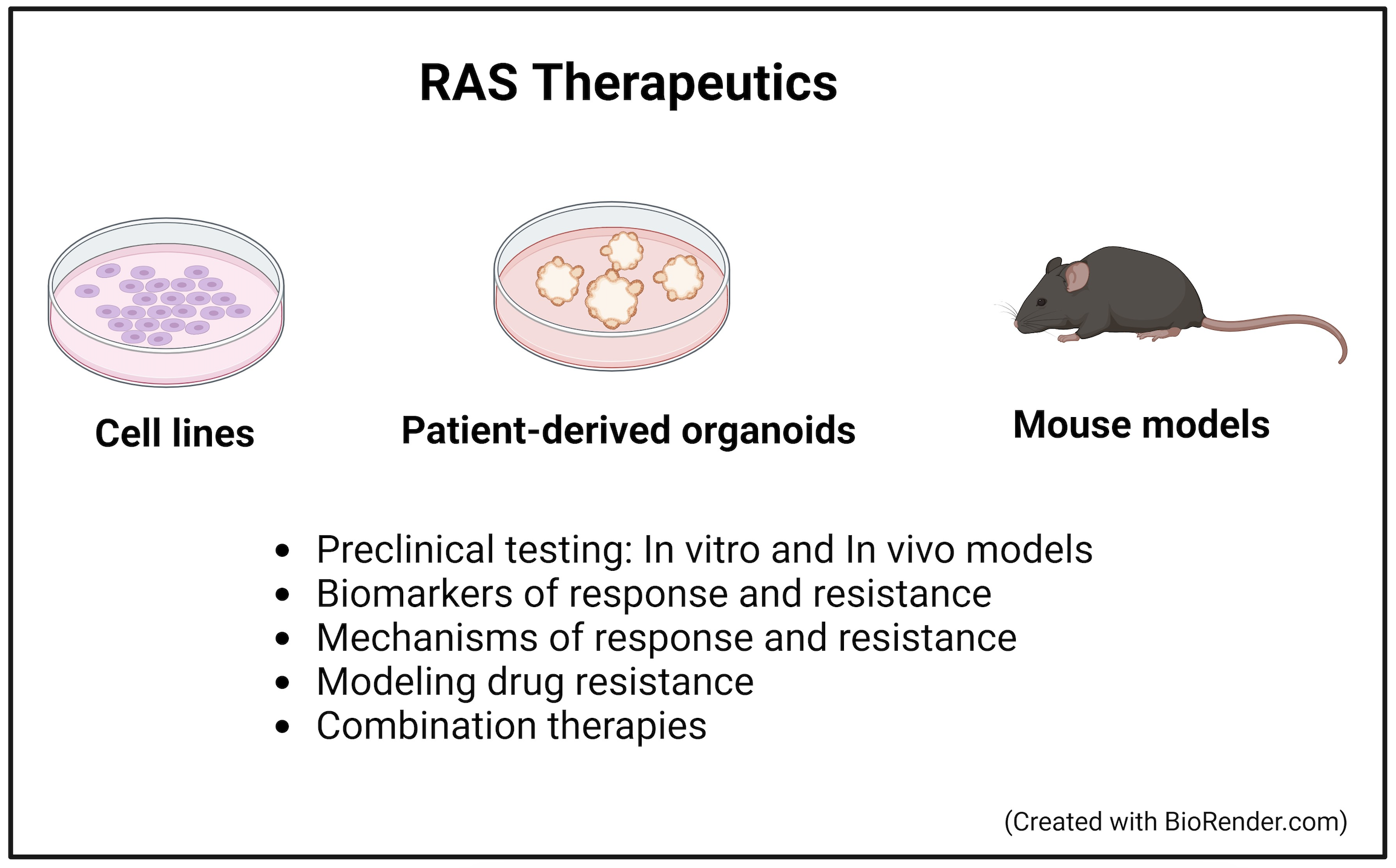
Senior Scientist, Hale Family Center For Pancreatic Cancer Research
Bio Research Interests Key Publications
Bio
Dr. Seema Chugh obtained her Bachelor of Science degree in Biochemistry from Panjab University, India, followed by a master’s program in Biochemistry at All India Institute of Medical Sciences (AIIMS, India). She completed her PhD in Biochemistry and Molecular Biology at the University of Nebraska Medical Center (Omaha, USA), where she relocated to the United States in 2012 to pursue her passion for cancer research. During her doctoral studies, she focused on Pancreatic Cancer glycobiology, leading to the development of the first genetically engineered mouse model of pancreatic cancer with aberrant O-glycosylation (KPCC mice). Her research work was published in Gastroenterology and featured on the cover of the November 2018 issue.
To further advance her research interests in basic and translational cancer research, Dr. Chugh joined the esteemed research lab of Dr. Arul Chinnaiyan (Rogel Cancer Center, University of Michigan, USA) as a Post-Doctoral fellow in Jan 2018. Her research work in Chinnaiyan lab was centered on KRAS-driven cancers, an area that until recently lacked small molecule inhibitors targeting KRAS directly. In the Chinnaiyan lab, she led multiple projects that were focused on RAS biology and cancer therapeutics. Her team conducted an exhaustive analysis of proteins interacting with KRAS, revealing Argonaute 2 (AGO2) as a binding partner. To delve deeper into the functional implications of this interaction, she characterized mouse models of pancreatic and lung cancer with knockout of Argonaute 2 (AGO2). Remarkably, in her studies with the pancreatic cancer model, the deletion of AGO2 halted the progression from Pancreatic Intraepithelial Neoplasia (PanIN) to Pancreatic Ductal Adenocarcinoma (PDAC). In parallel to KRAS biology, she also explored therapeutics and analyzed the efficacy of a Phase Ia-cleared, orally bioavailable dual ALK and focal adhesion kinase (FAK) inhibitor, ESK440, in multiple preclinical models of cancer. In addition to her research endeavors, Dr. Chugh has mentored several undergraduate students and helped them in achieving their career goals.
After gaining extensive experience in pancreatic cancer research, KRAS biology, and genetically engineered mouse models, Dr. Chugh joined as Scientist II in Andrew Aguirre’s lab and Hale Family Center for Pancreatic Cancer Research, Dana Farber Cancer Institute (DFCI).
Research Interests
Dr. Seema Chugh has been researching KRAS-driven cancers for over a decade (2012-Current). KRAS is mutated in more than 90% of PDAC patients and is the predominant driver of pancreatic cancer. Dr. Chugh spearheads the RAS therapeutic efforts in the pancreatic cancer center and Aguirre lab. She and her team are working on diverse RAS inhibitors (KrasG12D, pan-KRAS, and multi-RAS), procured from several biotech firms. Some of these compounds are currently undergoing early clinical trials.
Dr. Chugh is deeply committed to advancing pancreatic cancer therapeutics by accelerating preclinical research on KRAS inhibitors. Her focus extends to thoroughly exploring their therapeutic potential, understanding their mechanisms of action, and identifying resistance mechanisms to inform potential combination therapies. Concurrently, she supervises several research technicians, postdoctoral fellows, and clinical fellows in the Aguirre lab. Additionally, she leads the Hale Center Model core, which encompasses a biobank of patient-derived organoid models and various mouse models of pancreatic cancer.
Key Publications
Siebenaler RF*, Chugh S*, Waninger JJ, Dommeti VL, Kenum C, Mody M, Gautam A, Patel N, Chu A, Bawa P, Hon J, Smith RD, Carlson H, Cao X, Tesmer JJG, Shankar S, Chinnaiyan AM. Argonaute 2 modulates EGFR-RAS signaling to promote mutant HRAS and NRAS-driven malignancies. PNAS Nexus. 2022 Jul 28;1(3): pgac084. (*Co-first Authors)
Tien JC*, Chugh S*, Goodrum A, Cheng Y, Mannan R, Zhang Y, Wang L, Dommeti VL, Wang X, Xu A, Hon J, Kenum C, Su F, Wang R, Cao X, Shankar S, Chinnaiyan AM. AGO2 promotes tumor progression in KRAS-driven mouse models of non-small cell lung cancer. Proc Natl Acad Sci U S A. 2021 May 18;118(20): e2026104118. (*Co-first Authors)
Shankar S*, Tien JC*, Siebenaler RF*, Chugh S*, Dommeti VL, Zelenka-Wang S, Wang XM, Apel IJ, Waninger J, Eyunni S, Xu A, Mody M, Goodrum A, Zhang Y, Tesmer JJ, Mannan R, Cao X, Vats P, Pitchiaya S, Ellison SJ, Shi J, Kumar-Sinha C, Crawford HC, Chinnaiyan AM. An essential role for Argonaute 2 in EGFR-KRAS signaling in pancreatic cancer development. Nature Communications. 2020 Jun 4;11(1):2817. (*Co-first Authors)
Gupta R, Leon F, Thompson CM, Nimmakayala R, Karmakar S, Nallasamy P, Chugh S, Prajapati DR, Rachagani S, Kumar S, Ponnusamy MP. Global analysis of human glycosyltransferases reveals novel targets for pancreatic cancer pathogenesis. Br J Cancer. 2020 May;122(11):1726.
Barkeer S, Chugh S, Karmakar S, Kaushik G, Rauth S, Rachagani S, Batra SK, Ponnusamy MP. Novel role of O-glycosyltransferases GALNT3 and B3GNT3 in the self-renewal of pancreatic cancer stem cells. BMC Cancer. 2018 Nov;18(1):1157.
Chugh S, Barkeer S, Rachagani S, Nimmakayala RK, Perumal N, Pothuraju R, Atri P, Mahapatra S, Thapa I, Talmon GA, Smith LM, Yu X, Neelamegham S, Fu J, Xia L, Ponnusamy MP, Batra SK. Disruption of C1galt1 Gene Promotes Development and Metastasis of Pancreatic Adenocarcinomas in Mice. Gastroenterology. 2018 Nov;155(5):1608-1624; Featured on the Issue Cover
Barkeer S, Chugh S, Batra SK, Ponnusamy MP. Glycosylation of Cancer Stem Cells: Function in Stemness, Tumorigenesis, and Metastasis. Neoplasia. 2018 Aug;20(8):813-825.
Nimmakayala RK, Seshacharyulu P, Lakshmanan I, Rachagani S, Chugh S, Karmakar S, Rauth S, Vengoji R, Atri P, Talmon GA, Lele SM, Smith LM, Thapa I, Bastola D, Ouellette MM, Batra SK, Ponnusamy MP. Cigarette Smoke Induces Stem Cell Features of Pancreatic Cancer Cells via PAF1. Gastroenterology. 2018 Sep;155(3):892-908.e6.
Muniyan S, Haridas D, Chugh S, Rachagani S, Lakshmanan I, Gupta S, Seshacharyulu P, Smith LM, Ponnusamy MP, Batra SK. MUC16 contributes to the metastasis of pancreatic ductal adenocarcinoma through focal adhesion mediated signaling mechanism. Genes Cancer. 2016 Mar;7(3-4):110-124.
Chugh S, Meza J, Sheinin YM, Ponnusamy MP, Batra SK. Loss of N acetylgalactosaminyltransferase 3 in poorly differentiated pancreatic cancer: augmented aggressiveness and aberrant ErbB family glycosylation. Br J Cancer. 2016, Jun 14;114(12):1376-86.
Chugh S, Gnanapragassam VS, Jain M, Rachagani S, Ponnusamy MP, Batra SK. Pathobiological implications of mucin glycans in cancer: Sweet poison and novel targets. Biochim Biophys Acta. 2015 Dec;1856(2):211-25.
Rachagani S, Macha MA, Heimann N, Seshacharyulu P, Haridas D, Chugh S, Batra SK. Clinical implications of miRNAs in the pathogenesis, diagnosis and therapy of pancreatic cancer. Adv Drug Deliv Rev. 2015 Jan; 81:16-33.
Haridas D, Ponnusamy MP, Chugh S, Lakshmanan I, Seshacharyulu P, Batra SK. MUC16: molecular analysis and its functional implications in benign and malignant conditions. FASEB J. 2014 Oct;28(10):4183-99.
Ponnusamy MP, Seshacharyulu P, Lakshmanan I, Vaz AP, Chugh S, Batra SK. Emerging role of mucins in epithelial to mesenchymal transition. Curr Cancer Drug Targets. 2013 Nov;13(9):945-56.


